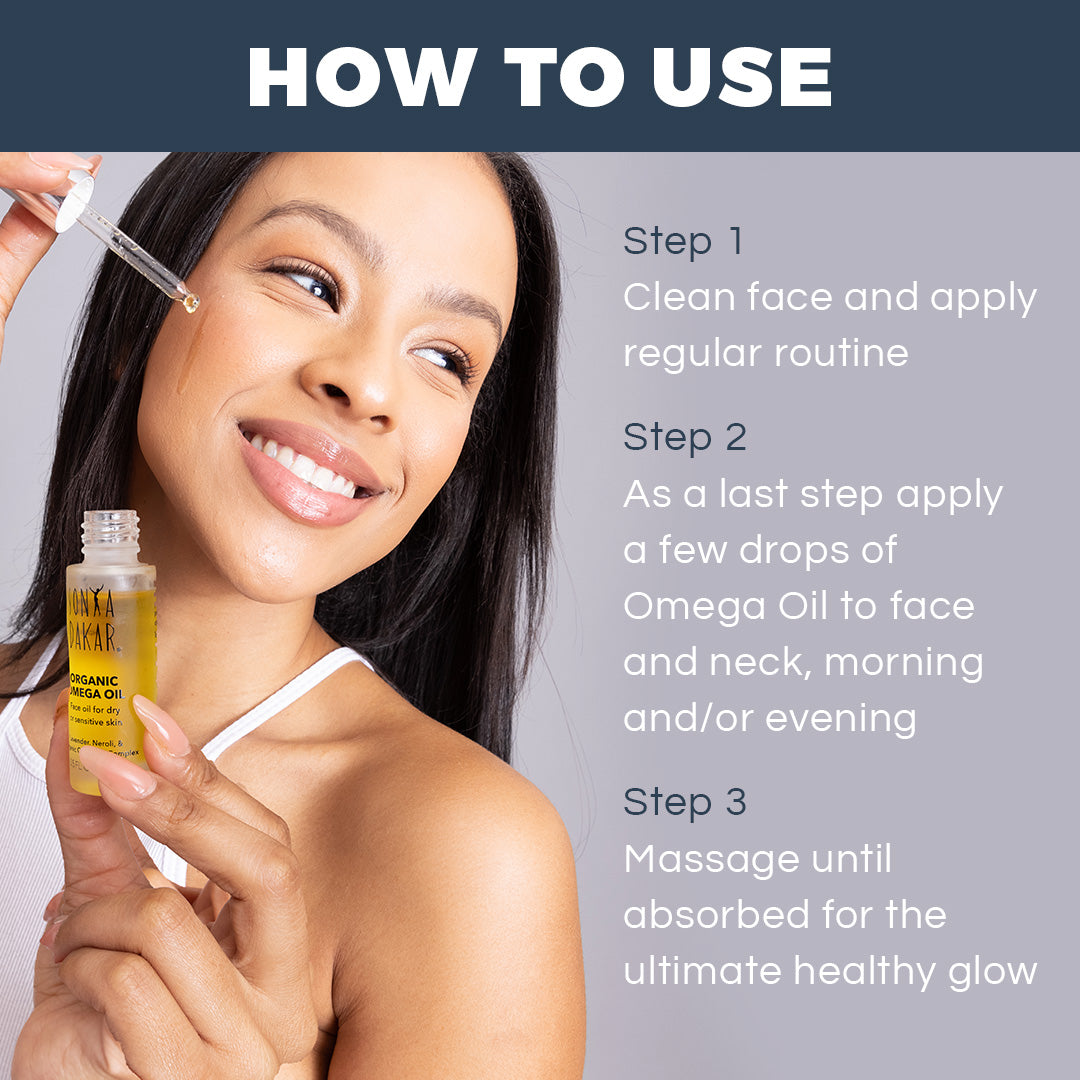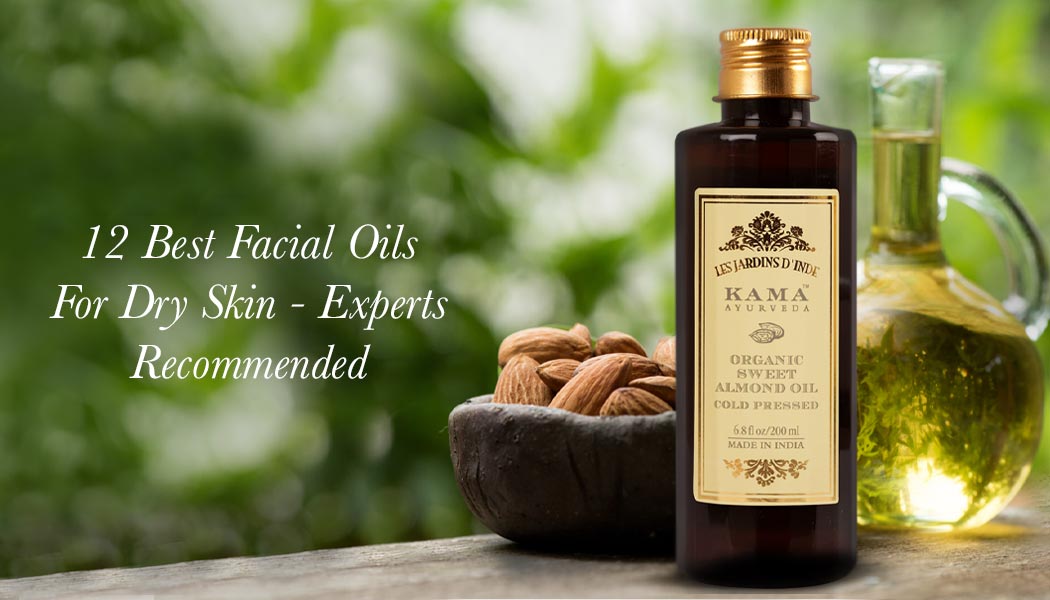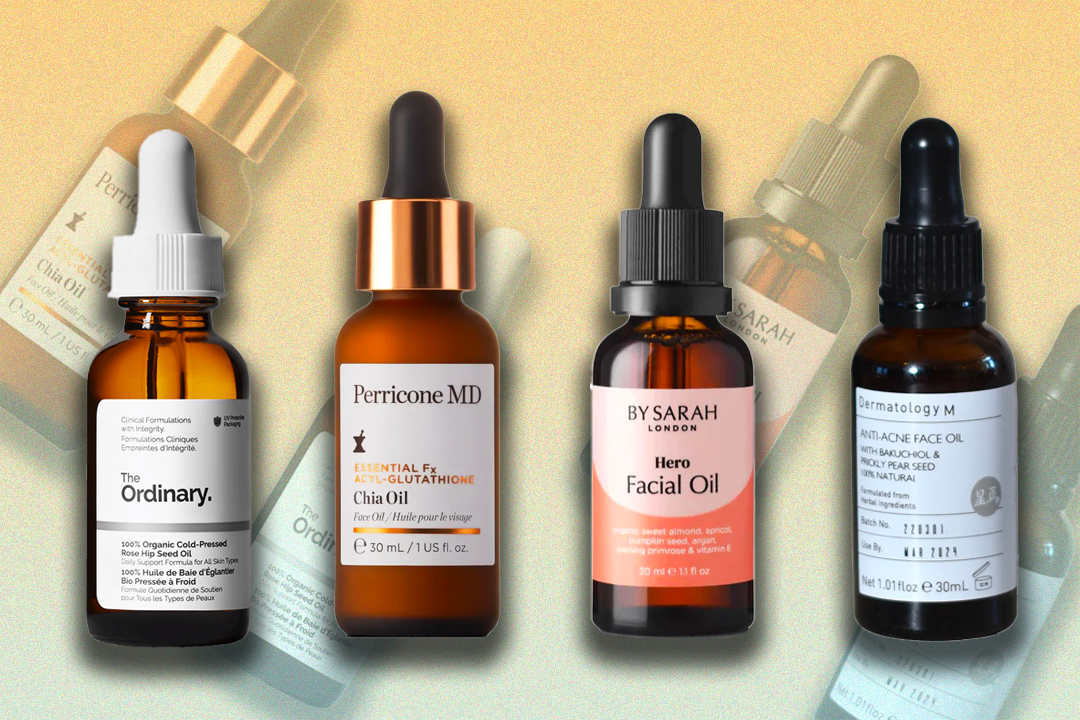The best face oil for dry skin is jojoba oil. It deeply moisturizes and balances the skin’s natural oils.
Dry skin needs intense hydration and nourishment. Jojoba oil is an excellent choice due to its similarity to the skin’s natural sebum. It penetrates deeply, providing long-lasting moisture without clogging pores. This oil also has anti-inflammatory properties, making it suitable for sensitive skin.
Rich in vitamins E and B-complex, jojoba oil promotes skin repair and health. Regular use can lead to softer, more radiant skin. For best results, apply a few drops to clean skin daily.

Credit: earthrhythm.com
Introduction To Face Oils
Face oils can work wonders for dry skin. They provide deep hydration and nourishment. These oils are packed with essential nutrients. Your skin will feel soft and smooth. Face oils are suitable for all skin types. They help in balancing the skin’s natural oils. Regular use can improve skin texture. Many people see a radiant glow after using face oils.
Face oils can lock in moisture. They form a protective barrier on the skin. This barrier prevents water loss. Many face oils have anti-aging properties. They can reduce the appearance of fine lines. Your skin will look youthful and radiant. These oils are rich in vitamins and antioxidants. They help in repairing damaged skin cells. Some face oils also have anti-inflammatory properties.
Dry skin needs extra care and attention. Face oils provide intense hydration. They can soothe and calm irritated skin. These oils absorb quickly into the skin. They do not leave a greasy residue. Face oils can be a game-changer for dry skin. They are easy to incorporate into your skincare routine. Just a few drops can make a big difference. Your skin will thank you for the extra moisture.

Credit: sonyadakar.com
Key Ingredients
Lavender oil helps to soothe dry skin. Rosehip oil provides deep hydration. Chamomile oil reduces redness and irritation. Tea tree oil fights acne and dryness. Frankincense oil restores skin tone.
Jojoba oil mimics skin’s natural oils. Argan oil is rich in fatty acids. Coconut oil offers intense moisture. Sweet almond oil is light and non-greasy. Avocado oil penetrates deeply into the skin.
Vitamin E protects against free radicals. Vitamin C brightens the skin. Coenzyme Q10 helps with skin repair. Retinol boosts collagen production. Niacinamide improves skin elasticity.
Top Face Oils For Dry Skin
Argan oil is perfect for dry skin. It is rich in vitamin E and essential fatty acids. This oil helps to moisturize and soften your skin. It absorbs quickly, leaving no greasy feeling. Use it daily for the best results.
Rosehip oil is another excellent choice. It contains vitamins A and C, which are great for repairing skin. This oil helps reduce dryness and improves skin texture. It also has anti-aging properties. Apply it before bed for smooth skin.
Jojoba oil is very similar to the skin’s natural oils. It helps to balance oil production and keeps skin hydrated. Jojoba oil is non-comedogenic, so it won’t clog pores. It’s great for sensitive skin. Use it in the morning or at night.

Credit: www.kamaayurveda.in
How To Apply Face Oils
Gently massage a few drops of face oil onto clean, damp skin for optimal absorption. Prioritize oils rich in hydrating properties like argan or jojoba for dry skin.
Application Techniques
Start with a clean face. Use a gentle cleanser to remove dirt. Pat your face dry with a soft towel. Take a few drops of face oil on your fingertips. Gently rub the oil between your hands to warm it. Apply the oil in an upward motion. Focus on dry areas like cheeks and forehead. Avoid the eye area. Use your fingertips to massage the oil into the skin. This helps with better absorption. Allow the oil to soak in before applying other products.
Best Time To Use
Use face oil as part of your night routine. Cleanse your face before applying the oil. This allows the oil to work overnight. Apply the oil after your serum and moisturizer. Your skin repairs itself while you sleep. Using face oil at night can provide intense hydration. You can also use it in the morning. Apply a few drops before your makeup. This helps to create a smooth base.
Diy Face Oil Blends
To make a simple face oil blend, start with a base oil. Use jojoba oil or sweet almond oil. Add a few drops of essential oils. Lavender and frankincense work well. Mix the oils in a small bottle. Shake well before use. Apply a few drops to your face. Gently massage into your skin.
Customize your face oil blend by adding different oils. Rosehip oil is great for anti-aging. Tea tree oil can help with acne. Experiment with different combinations. Keep a journal to note what works best. Always do a patch test before using new oils. This ensures you have no allergic reactions.
Face Oils Vs. Other Moisturizers
Face oils provide intense hydration. They help to lock in moisture. Other moisturizers may contain water-based ingredients. These may evaporate quickly. Face oils often contain vitamins and antioxidants. These can protect your skin. Other moisturizers may not offer the same benefits. Choosing the right product depends on your skin needs.
Use face oils at night. They work well when your skin is resting. Apply other moisturizers in the morning. They can be lighter and absorb quickly. Face oils are great for dry skin days. They help to soothe and nourish. Other moisturizers are good for everyday use. They keep your skin balanced.
Common Myths About Face Oils
Many believe face oils cause breakouts. This is not always true. Some oils are actually non-comedogenic. This means they won’t clog pores. Oils like jojoba and argan are safe for most skin types. They can even help balance oily skin. Remember to choose oils that suit your skin type. Always patch test before using a new product.
Some people think face oils are too heavy. Lightweight oils exist and absorb quickly. Rosehip and squalane oils are good examples. These oils provide moisture without feeling greasy. They can be used day and night. Lightweight oils work well under makeup too. Choose the right oil for your skin needs.
Tips For Choosing The Right Face Oil
Face oils come in many types. Dry skin needs hydrating oils. Look for oils like argan or jojoba. These oils help lock in moisture. Oily skin needs lighter oils. Try grapeseed or rosehip oil. These won’t clog pores. Sensitive skin needs soothing oils. Chamomile or calendula oil are good choices.
Always read labels on face oils. Look for natural ingredients. Avoid parabens and synthetic fragrances. These can irritate the skin. Check for essential fatty acids. These nourish and repair the skin. Antioxidants like vitamin E are also good. They protect the skin from damage.
Frequently Asked Questions
What Is The Best Face Oil For Dry Skin?
The best face oil for dry skin is often argan oil. It is rich in essential fatty acids and antioxidants. Argan oil deeply moisturizes, soothes irritation, and improves skin elasticity.
How To Choose A Face Oil For Dry Skin?
Choose a face oil with hydrating properties. Look for oils like jojoba, rosehip, or argan. These oils deeply nourish and repair dry skin.
Can Face Oils Help With Dry Skin?
Yes, face oils are excellent for dry skin. They provide essential moisture and nutrients. Oils like almond and marula help lock in hydration.
How To Use Face Oil For Dry Skin?
Apply a few drops of face oil to clean skin. Gently massage it in circular motions. Use it twice daily, morning and night, for best results.
Conclusion
Choosing the best face oil for dry skin can transform your skincare routine. Ensure to pick oils that hydrate deeply. Oils like argan, jojoba, and rosehip are excellent options. Remember to patch-test before full application. Enjoy the glowing, healthy skin you deserve with the right face oil.








